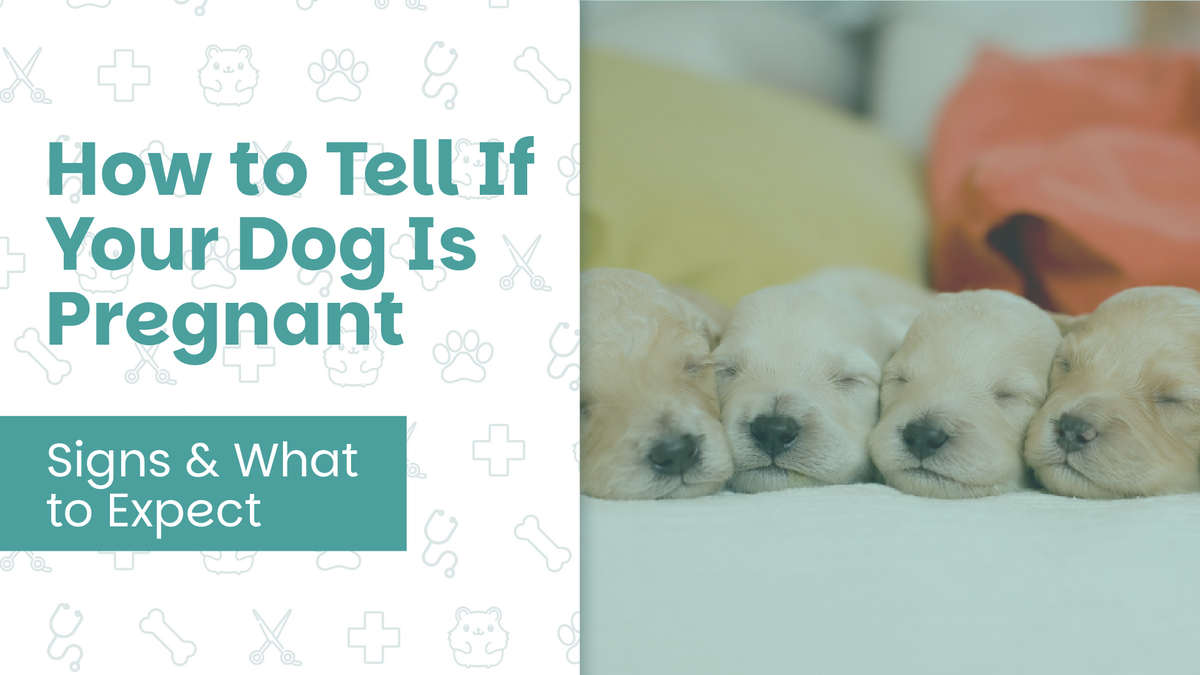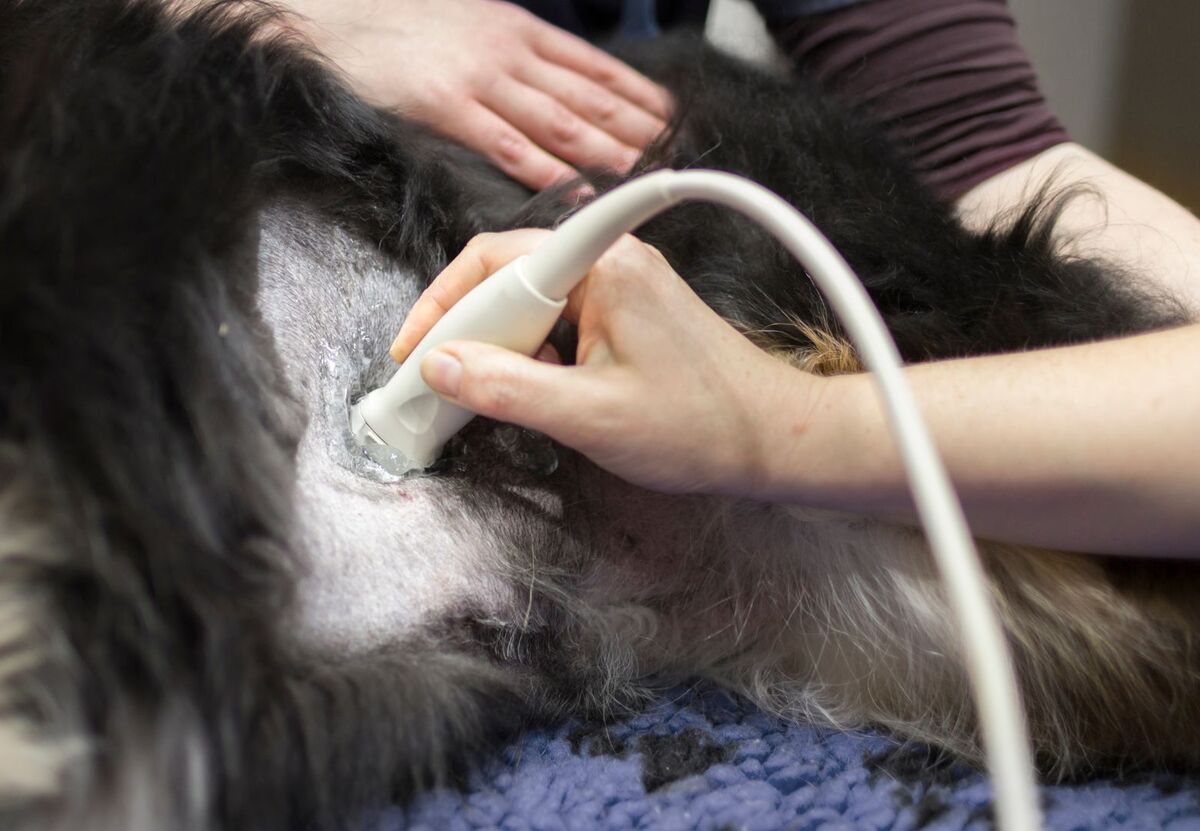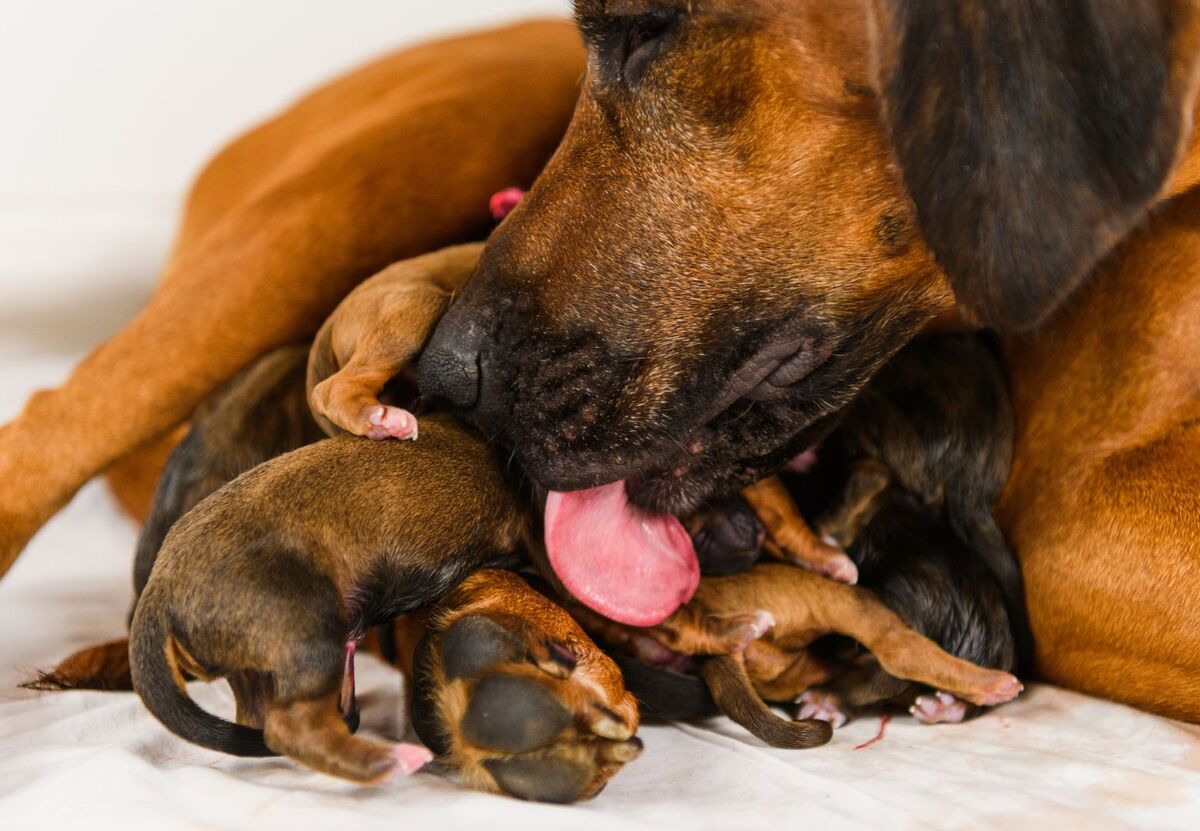How to Tell If Your Dog Is Pregnant: Signs & What to Expect

Is your sweet girl acting a little extra lately, and you’re starting to wonder… could tiny paws be on the way?
When your dog starts showing new behaviors like extra snuggling, slower walks, or a sudden dislike for her favorite treat, it can catch you off guard. It's only natural to start Googling.
A possible pregnancy can spark a whole lot of questions, especially when you’re trying to do everything right. You want to make sure she’s healthy, safe, and getting the care she needs (even if she’s still trying to sneak snacks off the counter).
The early signs can be subtle, and it’s easy to second-guess what you’re seeing. Knowing what’s typical and when it’s time to call the vet can help you feel more confident as things unfold.
In this blog, we’ll guide you through the telltale signs that your dog might be pregnant and walk you through what to expect in the weeks ahead.

Early Physical & Behavioral Signs of Pregnancy
Noticing a few small changes in your dog? This is often where the first clues begin to show. While nothing replaces a veterinary confirmation, these early signs can help you start piecing together the bigger picture.
Subtle Physical Changes
In the first few weeks, changes may be minimal—but they’re still worth watching.
You might see:
- Slight swelling or pinkening of the nipples, a change known as "pinking up"
- Mild weight gain that doesn’t seem connected to a shift in diet
- More naps or a noticeable drop in energy levels
- A clear vaginal discharge, which typically appears later in the early stages
These physical shifts are often easy to miss if you’re not looking closely, so pay attention to anything that feels out of the ordinary.
Behavioral Shifts to Watch For
In addition to physical signs, your dog’s behavior may begin to shift.
If she’s suddenly acting differently, there may be a reason:
- Becoming more affectionate or clingy
- Seeking out quiet spots or rearranging blankets in a nesting-like way
- Eating more—or less—than usual
- Showing sensitivity when touched or becoming irritable
These changes might be subtle at first, but together, they can signal that your dog is preparing for something big.

When and How to Get a Veterinary Confirmation
Once you notice a combination of physical and behavioral changes, it’s a good time to reach out to your veterinarian.
Why a Vet Visit Is Important
Veterinary confirmation does more than answer the big question.
It also:
- Helps rule out a false pregnancy or other underlying conditions
- Checks for signs of infection or other medical issues that could affect your dog’s health
- Determines gestational age and gives you an estimated due date
- Starts your dog on the path to proper prenatal care
Getting answers early can help you stay ahead of your dog’s health needs during this important time.
Methods for Pregnancy Confirmation
Your veterinarian has a few safe and reliable ways to confirm whether your dog is pregnant:
- Abdominal Palpation: Usually effective between days 28 and 30 of pregnancy
- Ultrasound: Can detect fetal heartbeats as early as 21 days in
- Blood Test: Checks for the hormone relaxin, typically detectable around day 25–30
- X-rays: Most useful after day 45 to estimate the number of puppies
Each method offers different benefits depending on your dog’s stage of pregnancy and your goals for planning.
What to Expect During Canine Pregnancy
If pregnancy is confirmed, understanding what happens next helps you prepare with confidence.
Here’s a look at how things usually progress:
Typical Pregnancy Timeline
Canine pregnancy lasts about 63 days, or nine weeks.
During that time:
- You’ll start seeing more visible changes by around week five
- Appetite often increases in the second half of pregnancy
- Behavior may continue to shift as your dog nears labor
Keep in mind that every dog is a little different, so timelines can vary slightly.
Common Physical Changes
As your dog’s pregnancy advances, the signs become much more noticeable:
- Her belly will grow rounder and more pronounced
- Nipples will enlarge, and milk may begin to appear closer to delivery
- Weight gain becomes more obvious, especially in the final weeks
These signs are all part of a healthy, progressing pregnancy.
.jpg)
How to Care for a Pregnant Dog
Supporting your dog through pregnancy means making a few adjustments to her care routine.
Below, we have outlined how you can help her stay comfortable and healthy.
Nutritional Needs
Pregnant dogs need extra nutrients to stay strong and nourish their growing puppies:
- Switch to a high-quality puppy food starting around week four
- Feed smaller meals more frequently as her appetite grows
- Always provide access to clean, fresh water
Proper nutrition is one of the best ways to support a healthy pregnancy.
Exercise and Comfort
Your dog may still enjoy her daily walks, but take it easy as her pregnancy progresses:
- Keep walks gentle and short
- Skip roughhousing or jumping
- Set up a soft, cozy space where she can relax and nest
Creating a calm environment helps reduce stress and encourages rest.
Monitoring Health
Regular check-ins with your vet make a big difference in keeping things on track:
- Schedule follow-up visits to monitor her progress
- Be alert for any signs of discomfort, discharge, or distress
- Keep your vet’s emergency number handy just in case
Proactive care can help prevent complications and provide peace of mind.
How to Prepare for Whelping
As the due date approaches, it’s time to get ready for the big day.
Signs Labor Is Near
When labor is around the corner, your dog may show signs such as:
- Restlessness or attempts to nest
- A drop in body temperature below 100°F
- Refusal to eat
- Panting, shaking, or pacing
These are your cues to stay close and keep an eye on her.
What You’ll Need on Hand
Being prepared goes a long way in creating a calm, safe environment for your dog to give birth.
Keep these essentials ready:
- Clean towels or blankets for drying and warmth
- Disposable gloves in case you need to assist
- A heating pad or warm water bottles to help keep puppies' cozy
- Your veterinarian’s number saved and easily accessible
Having the right supplies—and support—can help make the whelping process smoother for everyone involved.

Caring for Your Dog Through Every Stage with Lebanon Small Animal Clinic
From the earliest signs to the moment you welcome a new litter, pregnancy is a big milestone—and your dog deserves thoughtful, attentive care every step of the way.
Whether you're noticing subtle changes or counting down the final days to whelping, having a trusted veterinary partner can make all the difference.
At Lebanon Small Animal Clinic, our Care Companions are here to guide you through it all with expert advice, regular checkups, and a warm, compassionate approach. We’re proud to offer advanced care close to home—so you can focus on keeping your dog happy, healthy, and prepared for what’s next.
Have questions or want to schedule a prenatal visit? Give us a call. We're here to help you feel confident and supported through every stage of your dog’s pregnancy.


